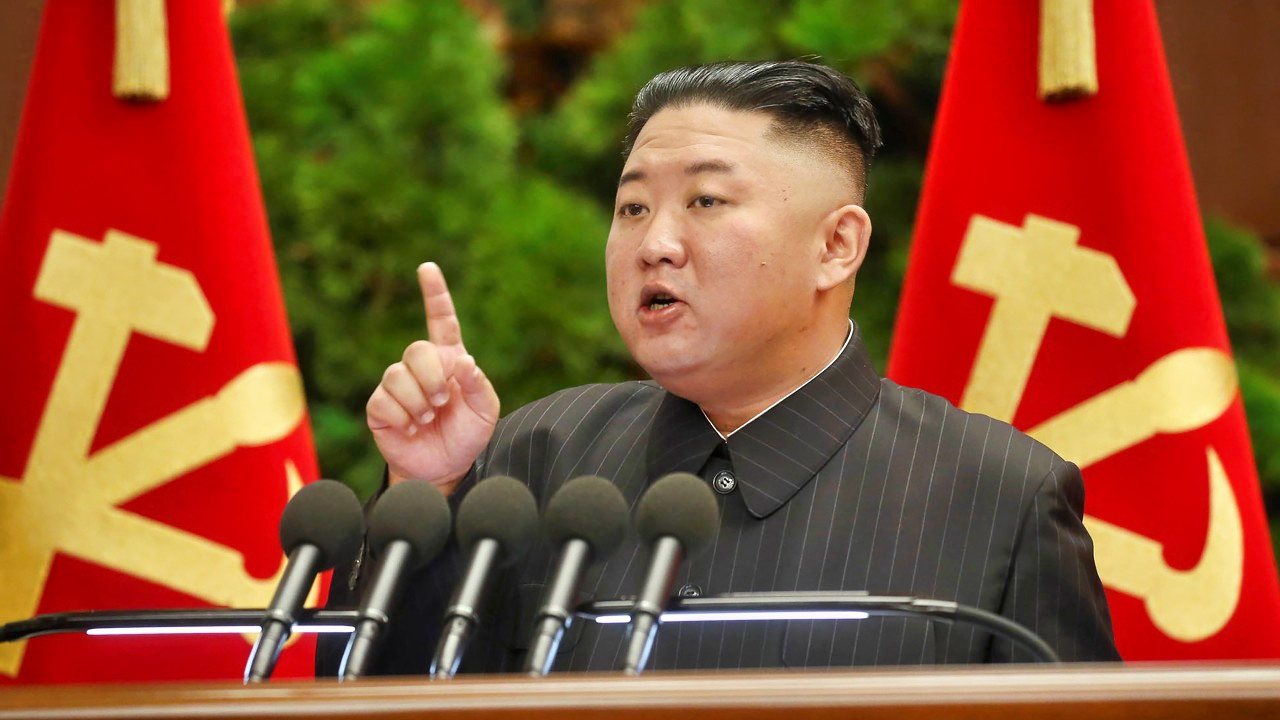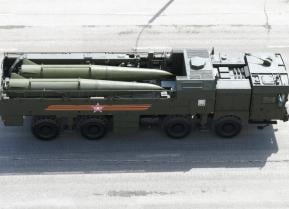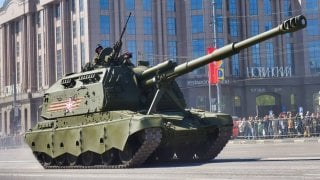North Korean Special Forces in Russia’s War on Ukraine: A Game-Changer?
North Korea’s decision to send 12,000 elite light infantry troops to support Russia in Ukraine signals deepening military ties, though it’s unclear if this will be a game-changer on the battlefield.
North Korean Combat Troops in Russia: A Significant Contribution?: It has now been confirmed by a plethora of sources that North Korean combat troops are going to be fighting in the war Russia is waging against Ukraine. The nature of the mission these troops will carry out and the effects that it will have, not only on the war but on North Korea-Russia relations is incredibly important.

Thus it is important to know several things: when did this start what are the troop numbers, who are these troops who will fight for Russia, will this have a major impact on the war, and perhaps just as importantly, what does North Korea get out of this?
North Korea has of course been supplying Russia artillery shells, ballistic missiles, and small arms for nearly two years now. The numbers are staggering and this has become a key aspect of the support to combat operations that the Russians need. But back in 2022 when all of this started, the North Koreans reportedly offered up 100,000 troops to support the fight. While that offer may or may not have been an exaggeration, Kim Jong-un has now decided to send at least this first contingent of troops to engage in the fight in Ukraine.
According to the South Korean press quoting the NIS (South Korea’s equivalent of the CIA), the first contingent of troops is around 12,000 men. This consists of four brigades, about 3,200 men each, that are subordinate to North Korea’s 11th Corps, which some experienced analysts may remember as the “Light Infantry Training Guidance Bureau.” The 11th Corps reportedly has ten independent brigades attached to it and there are also light infantry brigades attached to every geographical and functional corps in North Korea. North Korea’s light infantry troops are among the best trained, best fed, and most motivated of the country’s troops.
At least part of the initial contingent of men, 1,500 troops, left three North Korean ports on four transports and three frigates bound for Russia between 8 and 13 of October. Reportedly the troops will fight in Kursk and other areas of the war soon after they arrive in Russia.
The mission’s light infantry brigades are trained to include but are not limited to, infiltrating past the forward edge of the battlefield, infiltrating and disrupting or destroying sensitive facilities (especially airfields and POL), infiltrating enemy defensive positions to conduct enveloping, or flanking attacks in support of regular ground forces, seizure of major lines of communications, infiltrating enemy defenses to seize and control important terrain features and civilian facilities (such as dams, power plants, and other critical infrastructure), to act as reconnaissance assets to support corps and divisions, and to act as a rear guard and delaying force, during withdrawal operations, to harass the enemy by destroying bridges, tunnels, power grids, etc.
The question many have asked is will this deployment of North Korean troops to the war in Ukraine be a game changer? Certainly, in a symbolic sense, it already is.
Sending a nation’s best troops to engage in combat with an ally is a move that shows solidarity in both rhetoric and action. As for actually making a change in the war, two former U.S. government officials stated in remarks to Radio Free Asia that this would not be a game changer given the troop's numbers and size of weapons.
True enough. However, I believe it is likely the North Koreans will send more troops, thus the real answer appears to be more nuanced. It could be a game changer if significantly more troops are sent to fight in the war. Whether or not that will happen remains unknown.
It will also depend on how the North Korean troops are deployed under Russian command. The initial contingent reportedly had 500 officers and included three generals, among the 12,000 men, thus the possibility exists that these troops will retain their unit integrity, operating as battalions or even brigades attached to and supported by Russian command.

Light infantry units have participated in combined arms exercises in North Korea, but how they would do so, if they do so in the war in Ukraine remains an unanswered question. In other words, making the call about whether or not this will be a game-changer is nothing short of reckless. The possibility exists that it will, certainly, but it could also end up being simply a token of one ally supporting another. When it comes to actions that could be considered a “game changer,” North Korea has already reportedly accounted for fully half of the ammunition used by Russia in combat actions against Ukraine over the past year.
How Is That Not a Game-Changer?
It is quite obvious what Russia will get out of this deployment of troops. If the Russians choose to use these troops the way they have been trained, Moscow now will have more jump-qualified special forces troops to augment its elite forces. But Russia’s special forces have had real challenges in this war. And if the goal is to beef up the strength of these capabilities in a way that will have a strong impact, significantly more North Korean troops would need to deploy to the war. On the other hand, the Russians may choose not to use these troops as special forces at all and that would likely mean high casualties for the North Koreans.
What Do the North Koreans Get Out of This?
For Kim Jong-un, the longer this war goes on the better off North Korea is. North Korea has survived for many years in no small part due to its military proliferation in the Middle East and Africa. But North Korea has never proliferated conventional weapons and missiles in such large numbers in such a short time as they have for the war in Ukraine. That brings in money, oil, foodstuffs, and technical/weapons systems updates and support for North Korea’s very large but largely antiquated military.
One must realize, to the Kim family regime, that special operations forces are just like artillery systems or ballistic missiles, a weapons system that can be proliferated for profit to benefit the regime. According to press reports, Russia is paying $2,000 a month to each North Korean soldier. But this is paid to the North Korean government, not the soldiers. Thus, the more troops North Korea sends to fight the war in Ukraine, the more money it makes for the regime. Pyongyang has never had a better deal.
About the Author:
Bruce E. Bechtol, Jr. is an award-winning professor of political science at Angelo State University and a retired Marine. He was an intelligence officer at the Defense Intelligence Agency from 1997 until 2003, eventually serving as the senior analyst for Northeast Asia in the Intelligence Directorate (J2) on the Joint Staff in the Pentagon. He is the current president of the International Council on Korean Studies and serves on the board of directors of the Council on U.S.-Korean Security Studies. He is the author of the recent book North Korean Military Proliferation to the Middle East and Africa: Enabling Violence and Instability (University Press of Kentucky: 2018), North Korea and Regional Security in the Kim Jong-un Era: A New International Security Dilemma (Palgrave Macmillan: 2014), The Last Days of Kim Jong-Il: The North Korean Threat in a Changing Era (University of Nebraska Press: 2013), Defiant Failed State: The North Korean Threat to International Security (Potomac Books: 2010), and Red Rogue: The Persistent Challenge of North Korea (Potomac Books: 2007).
Image Credit: Creative Commons and/or Shutterstock.


